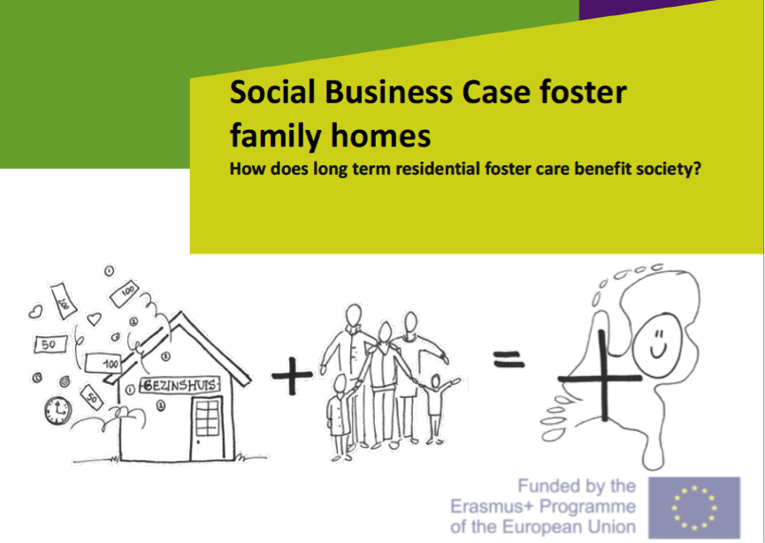
Long-term residential foster care for children in care adds value. This is what the social Business Case of foster care homes proves. It helps children with complex and multiple problems in establishing a social network. It improves the chance to find a job and housing and also improves their social position. But long-term residential foster care placement is not just beneficial for the child itself. It also means the financer (often being the city council) benefits from this. Residential foster care prevents more expensive types of care (such as group placements). It also prevents criminality and saves money in benefit payments. When expressing the added value in money, every euro invested has a return of €1,30! In this way, the social business case reinforcesthe added value of residential foster care.
Concrete added vallue of family homesIn order to establish the return of long-term residential foster care, all expected economic and social costs and profits of family homes have been mapped out. This has been done using the Social Return on Investment (SROI) method. The estimated effects of long term residential foster care have been described for the main stakeholders (the children themselves, the biological family, de financer, care provider, city council and the referrer).
These effects has been named in this study, and a financial value has been given to each of them. This makes it possible to establish the social return. The effects have been made explicit for as much as possible. This has been done by taking inventory of them at mutiple institutions, consulting a broad range of experts and by using references from literature. In this way an important framework has been built, which can be used to provide insight into the effects of long-term residential foster care. By comparing the benefits with the costs in this sBC, the profit of residential foster care has been clarified.
Foster care placement: substantial and social return
The outcome of this sBC shows that the average cost per child in care are lower than the profit in the long run. Long-term care in foster family homes has a positive social return, with a value of € 1,30, in other words 30% of foster home placements offer children with complex and multiple problems a safe and stable place to live. This provides a strongly improved social position for the rest of their lives. Not only does it bring great benefit to the child, but also for other parties involved, such as the financers like the city council. They save money by not having to make future investments, such as benefit payments. The results of this mBC underwrite both the substantial and social financial added value of long term residential foster care. In short: it is beneficial to invest in long-term residential foster care!
Interested to read the full SROI report? Download now!
-1.jpg?width=232&name=GT%20Sinzer_logo_screen_descriptor%20(1)-1.jpg)


